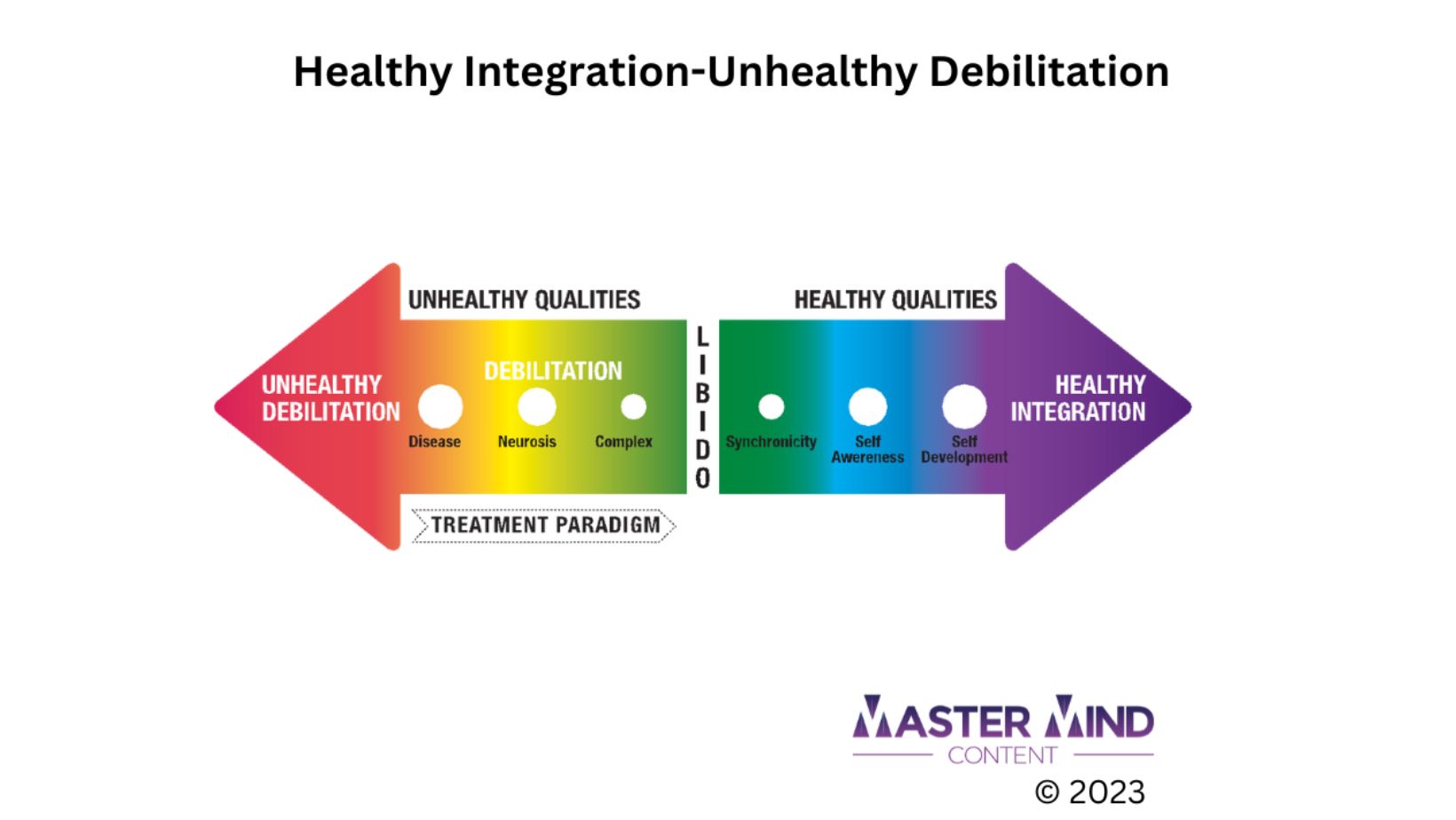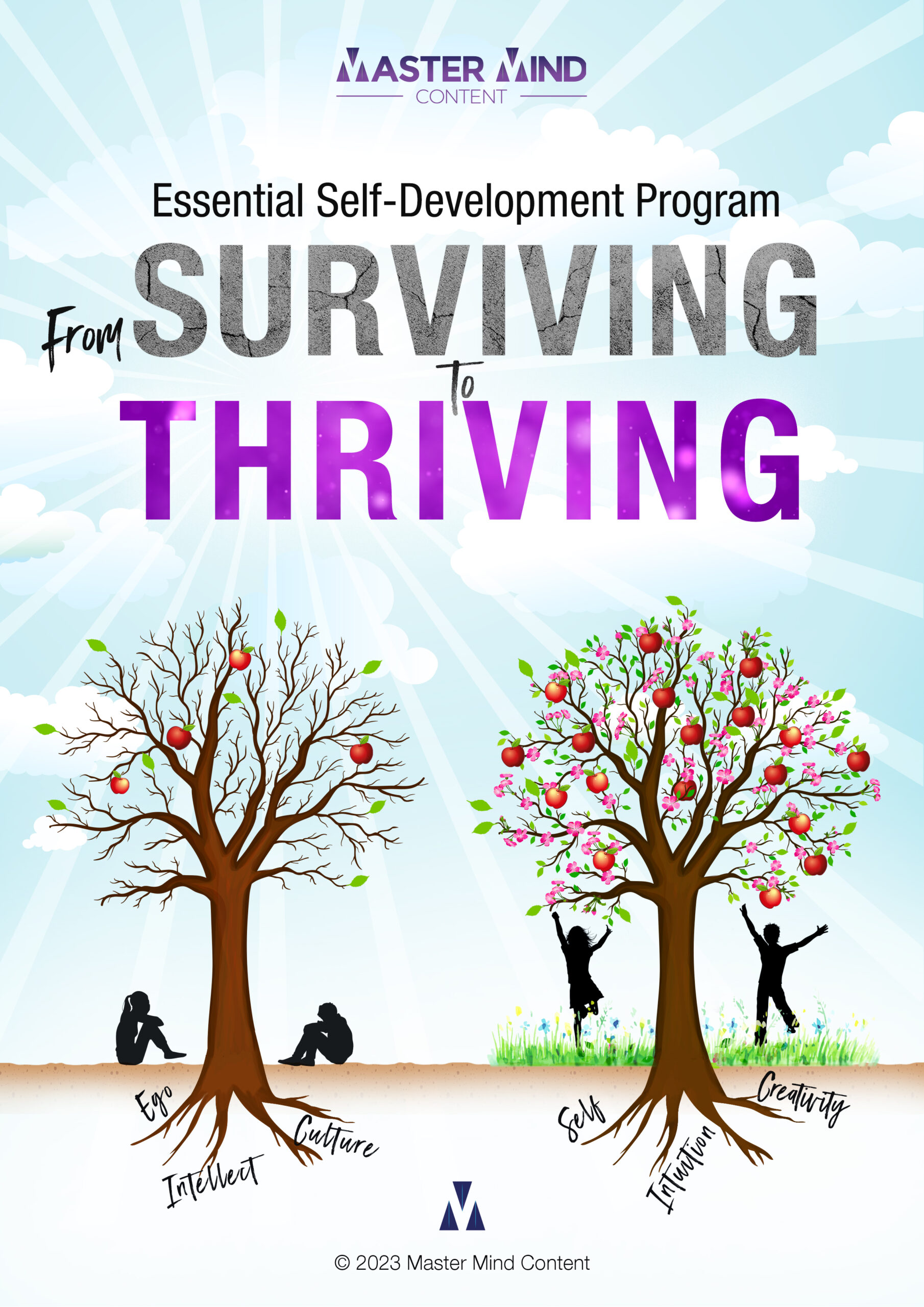
A key goal in life is, or should be, to become self-actualised. This is a term that originated from renowned psychologist Abraham Maslow’s theory of human motivation.
Maslow defined self-actualisation as the:
Thought-Provoking Quote
“…ongoing actualisation of potentials, capacities and talents, as fulfilment of mission (or call, fate, destiny, or vocation), as a fuller knowledge of, and acceptance of, the persons intrinsic nature, as an unceasing trend toward unity, integration of synergy within the person)”.
~ Abraham Maslow: Toward A Psychology Of Being [1]
Moreover, Maslow believed that striving towards an actualised state of being is a necessary requirement for growth, fulfilment and satisfaction. He hypothesised that our outlook on life, and subsequently, our state of mind is correlated with whether our needs and drives are met.
Our basic needs relate to physical survival; food, water, shelter and safety. These need to be met first. Then we strive to achieve social connection and self-esteem. Once all of these goals are met, we move on to seeking self-actualisation—or achieving our full potential.
Thought-Provoking Quote
“Preserving oneself and reaching out for fulfilment, for excitement and for enlargement. I have tried to express this as a contrast between living fully and preparing to live fully, between growing up and being grown”.
~ Abraham Maslow: Toward A Psychology Of Being [2]
Later, an additional need was added—contributing something purposeful that is greater than ourselves. This is also referred to as “Beyond Self-Actualization,” “Transcendence,” or “Selfless Actualization”. [3]
In short, self-actualisation involves transcending the external needs of the ego and integrating fragmented parts of your personality that have been repressed. Once the foundations of your personality are in place – self-esteem, confidence and love – you can move from surviving mode into thriving mode.
Maslow suggested that basic needs are “deficit needs” or D-Love which stands in opposition to what he labelled B-Love — a process of being. It is in the latter dynamic that we are self-actualised or moving towards self-actualising.
To give you some idea, Maslow defined B-love as feeling love for another person without needing anything in return, a selfless love which augurs unselfish acts.
When we behave from a base of D-Love, on the other hand, a deficiency exists which creates love needs; affection, acknowledgement, appreciation etc. This is a state of being associated with the unhealthy traits of the Caretaker which I described in the Caretaker Part Two | Archetypes Explained series on YouTube.
<<<<Watch by clicking in the video below>>>>
As I mentioned in The Caretaker Part 2 video, you can identify if you have deficiency needs if you are a people pleaser (as opposed to a pleaser of people which is a healthy psychology).
The unhealthy Caretaker shows up in individuals that have low self-esteem which drives an unconscious lack of self-respect. In this stage of conscious awareness, you are stuck in survival mode.
More precisely — emotional survival! The ego protects your emotional survival.
Self-actualisation and beyond promote “growth needs.” In this stage of conscious awareness, you transcend survival instincts and become attuned to thriving.
Ironically, thriving can be driven by the need to survive. We are often more motivated when we are at our most desperate. It is a question of sink or swim.

Individuals with a healthy mindset fuelled from a loved-based centre will learn to swim. If your mind is operating from a fear-based centre, you’re more inclined to sink.
Anxiety is a sign that you are in a situation that you need to survive. Chronic anxiety is an indication that you are having difficulty learning to swim. If you fall into depression, you are literally drowning in the sea of your unconscious.
You are being overwhelmed by the energies of your repressed emotions.
If you want to survive in this life, you have to thrive. Fuck emotional survival. Unless you take uncomfortable action and expose yourself to experiences that make you feel vulnerable you will never grow.
You learn how to swim by jumping into the pool. The ego needs life experiences to learn how to live. The more situations you find yourself in, the more developed and whole you become.
Studies show that personal growth is considered to be a crucial precursor to well-being [4] There is also growing evidence to show that neglecting self-development leads to neuroses such as anxiety and depression. [5] It also increases your risk of disease. [6]

When you experience a complex or the symptoms of a neurosis, it is important to recognise them as the emergence of consciousness. This type of complex or neurosis can be classified as the emergence of an archetypal energy that is hidden from conscious awareness.
Once the emerging archetype comes into conscious awareness, you are in a position, and responsible for integrating the energy into your personality. In other words, you program the ego to relate to the external world.
You learn how to swim.
Thought-Provoking Quote
“Every archetype is capable of endless development and differentiation. It is therefore possible for it to be more developed or less…”
~ Carl Jung, CW 12, Psychology and Alchemy [7]
When the conscious mind recognises and acknowledges the emerging quality surfacing from the unconscious — which Jung calls an archetype — you move towards self-actualisation, or what Jung called individuation.
Thus the archetypes play a central role in identifying the emergent qualities of your personality. They are reflected in the thoughts, actions and behaviours of the ego. They are recognised in complexes, neurosis and disease.
Researchers indicate that thinking in black-and-white terms, results in missed opportunities to learn, grow, and experience things that could bring more meaning to our lives. Self-actualisation involves being open to alternative information and points of view. [8]
An individuating approach to life involves looking at problems in creative ways and from different perspectives. This requires you to be more open to engaging in different experiences — even when your ego is afraid or anxious. [Hero]
Anxiety arises due to a fear of loss, failure, disappointment or rejection. In some people, these fears prevent you from engaging in life altogether. A strategy to overcome this is to relinquish the desire or expectation of an outcome.
If there is no desire, there is no fear.

If you aim to become your best self, get clear on your values, principles and life goals [9]. When you strive to reach goals that go against your values or morals, you betray yourself.
Self-betrayal leads to a lack of fulfilment, dissatisfaction and unhappiness. Maslow theorised that betrayal is linked with being disappointed in yourself which he related to “intrinsic guilt”.
Thought-Provoking Quote
“Intrinsic guilt is the consequence of betrayal of one’s own inner nature or self, a turning off the path to self-actualisation, and is essentially justified self disapproval.”
~ Abraham Maslow: Toward A Psychology Of Being [10]
Mainstream psychologists relate self-actualisation to “esteem needs” [11]. For example, a yearning for love and belonging or for success in a career.
There is nothing at all wrong with striving for love or success to build self-esteem. In fact, according to mainstream psychology, we need to satisfy these needs before moving on to self-actualisation.
But, in my experience, and therefore, in my opinion, nurturing self-esteem is part of the process of self-actualisation. It is a foundational element that gives you the emotional stability to pursue higher goals.
To nurture self-esteem, you first have to accept the way you are now. Acknowledge, that you have weaknesses that can be transformed into strengths. Observe when your behaviours are driven by deficiency needs or a fear-based centre. Accept they exist, and find a solution.
Solutions can be inspired by the archetypes tool in the Master Mind Content Self-Development Program. There is no single solution that I can offer here because the solution is determined by the emerging archetypal energy and your individual preference.

One of the reasons that you might feel anxious and potentially become depressed, restless or unhappy is because the nervous system represses aspects of your personality.
But the reason this happens is because culture determines how we should behave; and what is accepted and not accepted. Fuck cultured civilisation and “masters” telling you how to behave at any given moment. Express yourself as you see fit. Just don’t break any justified laws like killing and stealing.
What you need to do is express your True Nature in ways that you feel are fitting for the situation. But you also have to honour your instincts and don’t suppress them when they surface.
This can present you with a balancing act at times, especially if an unconscious energy that has been repressed projects onto the conscious ego and throws you into a moment of madness.
But in my experience, this type of overwhelming projection is rare. You know you have these moments, but they don’t happen very often. Therefore it should be safe for you to be authentic and honour archetypal energies when they arise.
This is what it means to be self-directed (Ruler). Being self-actualised doesn’t mean that you suddenly become enlightened like Buddha or Jesus. Becoming whole may not even lead to enlightenment.
But it does lead to positive physical and mental health outcomes. It does lead to happiness, fulfilment, satisfaction, love, peace and wisdom.
Archetypal energies are powerful tools that help determine which unconscious energies are trying to break through into your conscious thinking.
Master Mind Content has developed a self-development program that shows you how to recognise archetypal energies and adjust your thoughts, actions and emotions accordingly. With these tools, you will be able to release repressed consciousness, develop your personality and upgrade your subconscious programs with energies that deliver a better quality experience of life.
[1] Abraham Maslow: Toward A Psychology Of Being, p.29, Kindle Loc 512, (1962)
[2] Ibid, p.35 Kindle Loc 633, (1962)
[7] Carl Jung, CW 12, Psychology and Alchemy, para12, (1968)
[9] Ibid
[10] Abraham Maslow: Toward A Psychology Of Being, p.161, Kindle Loc 3200 (1962)
